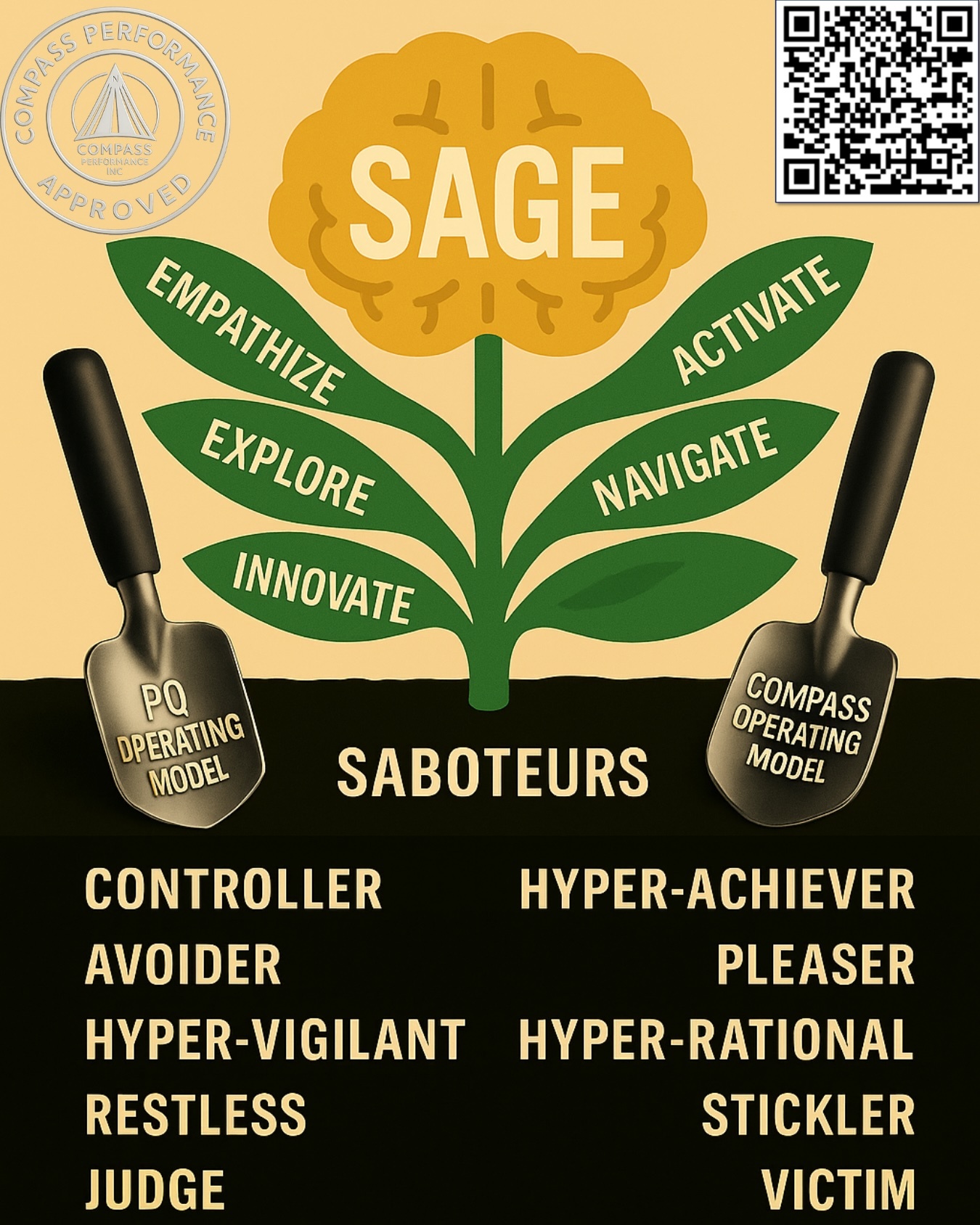

Positive Intelligence, as defined by Shirzad Chamine, refers to the percentage of time your mind serves you as opposed to sabotaging you. The program centers around the concept that your inner saboteurs – the negative thoughts, self-doubt, and self-criticism – can be retrained to become your allies. This transformation is not only about boosting positivity but also about enhancing your mental fitness and resilience. The Program consists of several components, with the three core principles being:
Saboteur Assessment: The program begins with a self-assessment to identify the nine common saboteurs, such as the Judge, Controller, Avoider, and Victim, that reside within our minds. Understanding these internal adversaries is the first step to taking control of them.
Sage Wisdom: The PQ Program introduces the concept of the “Sage,” the inner superhero of your mind. The Sage represents your higher self and is the source of wisdom, perspective, and positivity. The goal is to develop your Sage to counteract the saboteurs.
Daily PQ Reps: A key part of the program involves daily PQ Reps, which are short exercises designed to boost your Positive Intelligence. These practices help rewire your brain by shifting your focus from negativity to positivity, and from self-doubt to self-confidence.
© Copyright Positive Intelligence. No reproduction, in any form, printed or electronic, is permitted without prior written permission from Positive Intelligence. www.positiveintelligence.com
